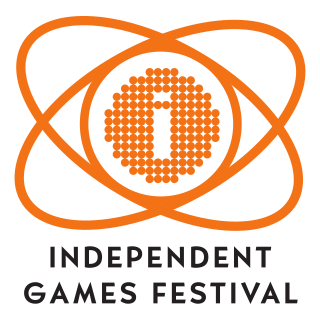
The Independent Games Festival (IGF) is an annual festival at the Game Developers Conference (GDC), the largest annual gathering of the independent video game industry. Originally founded in 1998 to promote independent video game developers, and innovation in video game development by CMP Media, later known as UBM Technology Group, IGF is now owned by Informa after UBM's acquisition.

The Game Developers Conference (GDC) is an annual conference for video game developers. The event includes an expo, networking events, and awards shows like the Game Developers Choice Awards and Independent Games Festival, and a variety of tutorials, lectures, and roundtables by industry professionals on game-related topics covering programming, design, audio, production, business and management, and visual arts.
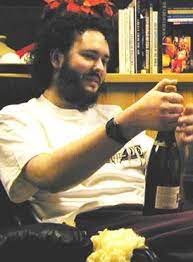
Seumas McNally was a Canadian video game programmer and designer. He is best known for indie games, notably DX-Ball and Tread Marks, which won the Grand Prize at the Independent Games Festival (IGF). The award was posthumously renamed in his honour when he died at age 21 of Hodgkin's lymphoma, shortly after having received the award himself.
Game Developer is a website created in 1997 that focuses on aspects of video game development. It is owned and operated by Informa and acted as the online sister publication to the print magazine Game Developer prior to the latter's closure in 2013.

Antichamber is a first-person puzzle-platform game created by Australian developer Alexander "Demruth" Bruce. Many of the puzzles are based on phenomena that occur within impossible objects created by the game engine, such as passages that lead the player to different locations depending on which way they face, and structures that seem otherwise impossible within normal three-dimensional space. The game includes elements of psychological exploration through brief messages of advice to help the player figure out solutions to the puzzles as well as adages for real life. The game was released on Steam for Microsoft Windows on January 31, 2013. A version originally sold with the Humble Indie Bundle 11 in 2014 added support for Linux and OS X.
Anino Games is a Philippine third-party game developer for different platforms founded by Niel Nagondon who is often acknowledged as the pioneer of the gaming industry in the Philippines. It is composed of two sister companies – Anino Entertainment, which focuses on PC, console, and virtual reality games, and Anino Mobile, which develops mobile games. The company takes its name from anino, a Tagalog word meaning "shadow".

Alec Holowka was a Canadian indie game developer and co-founder of independent game companies Infinite Ammo, Infinite Fall, and Bit Blot. He was mainly known for the award-winning titles Night in the Woods and Aquaria.

Jonatan Söderström, also known as Cactus, is a Swedish video game developer. He is best known as the co-designer and programmer of Hotline Miami (2012) and Hotline Miami 2: Wrong Number (2015), but had prior to those games developed over 40 small freeware games, many of which were positively received. His game Clean Asia! was nominated for both Excellence In Visual Arts and Excellence in Audio at the Independent Games Festival in 2008. In 2010, he won the IGF's Nuovo Award, which honours unconventional game development, for his puzzler Tuning.
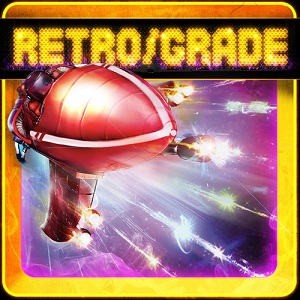
Retro/Grade is a video game developed by 24 Caret Games. The game is about ace pilot Rick Rocket, who must repeat his last space battle in reverse in order to protect the space time continuum. The game play is rhythm-based and timed to original music by Skyler McGlothlin. In January 2009, it was nominated for two Independent Games Festival awards: Excellence in Audio and Excellence in Design. In October 2010, it won the Audience Choice Award at IndieCade.
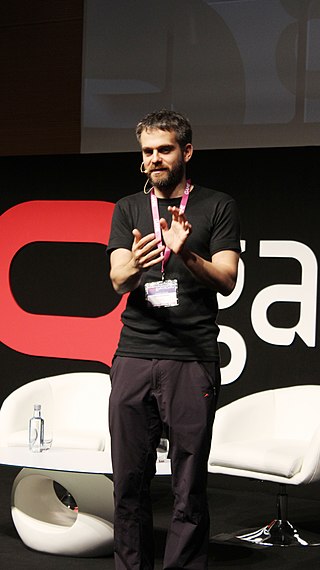
Daniel Benmergui is an independent game designer from Buenos Aires, Argentina known for the creation of art games such as Today I Die, I Wish I Were the Moon, and Storyteller.

Simogo is a Swedish independent video game developer based in Malmö. The company was founded in 2010 and is best known for creating games for mobile devices, including Year Walk and Device 6. Its name comes from the name of its founders Simon (SIM), and Gordon (GO); the 'O' from the Swedish word "och" meaning "and".

Cart Life is a simulation video game developed by Richard Hofmeier using Adventure Game Studio for Microsoft Windows released in 2010. The game was added to Steam in March 2013 but later removed when Hofmeier released the full source code for free.

Adam Saltsman, also known as Adam Atomic, is an American indie video game designer best known for creating the endless runner Canabalt. He is a founder of Semi Secret Software and Finji video game studios.

The Seumas McNally Grand Prize is the main award given at the Independent Games Festival (IGF), an annual event that takes place during the Game Developers Conference, one of the largest gatherings of the indie video game industry. The award is named after computer game programmer Seumas McNally (1979–2000), founder of independent game development company Longbow Digital Arts. McNally died of Hodgkin's lymphoma shortly after receiving the award, then just the IGF Grand Prize, in 2000 for his game Tread Marks. The award is given alongside a prize of US$30,000.
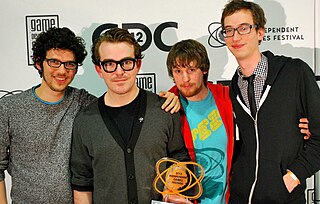
The high-profile and protracted five-year development of the video game Fez led to its status as an "underdog darling of the indie game scene". The 2012 puzzle-platform game built around rotating between four 2D views of a 3D space was developed by indie developer Polytron Corporation and published by Polytron, Trapdoor, and Microsoft Studios. Over the course of the game's development, Fez designer and Polytron founder Phil Fish received celebrity status for his outspoken public persona and prominence in the 2012 documentary Indie Game: The Movie, which followed the game's final stages of development and Polytron's related legal issues. The game was released to critical acclaim as an Xbox Live Arcade timed exclusive, and was later ported to other platforms. It had sold one million copies by the end of 2013.
Renga is a shoot 'em up video game developed and published by British studio wallFour. Designed for movie theaters for up to one hundred players, players are given laser pointers and are tasked with cooperatively building and defending a space ship. It was showcased at 2012's Indiecade, where it won the Developers Choice Award.

Michael Brough is a New Zealand-born indie video game developer known for his eclectic roguelike games. His games are often tightly-focused explorations of a single mechanical aspect of the roguelike genre, set on unusually small grids. This style of game, perhaps best exemplified by 868-HACK, has become widely known as the "Broughlike".

Nathalie Lawhead is an independent net artist and video game designer residing in Irvine, California.
Tyler Glaiel, also known by the moniker Glaiel Games, is an American video game designer and programmer known for games such as Aether (2008), Closure (2012), Number (2013), Bombernauts (2017), The End Is Nigh (2017) and Mewgenics (2025).
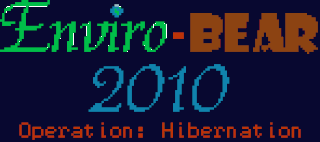
Enviro-Bear 2000 is a 2009 video game by Canadian independent developer Justin Smith. The game is a mixture of action, racing and survival genres as the player, who is a bear, attempts to drive a car around a forest to collect enough food to hibernate for the winter.



















